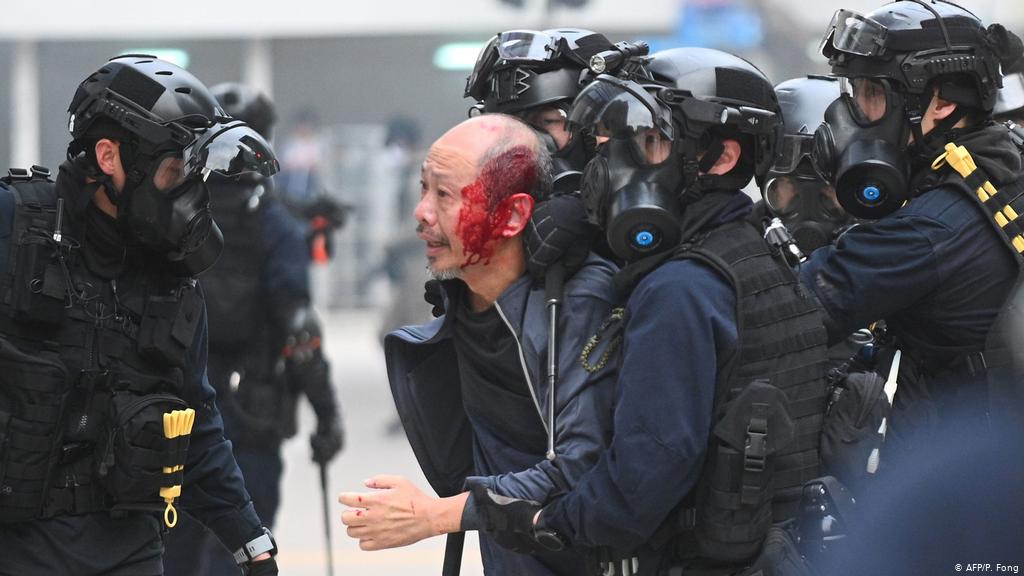On 19th November 2020, High Court judge Anderson Chow, in response to a case filed by the Hong Kong Journalists Association, ruled against the Hong Kong government which was found to have breached the Bill of Rights.
Article 3 of the Hong Kong Bill of Right states “No one shall be subjected to torture or to cruel, inhuman or degrading treatment or punishment”. The latest ruling says this was breached due to the failure of the government in providing means to citizens to file complaints against the police to an independent body. The judge stood in favour of setting up an ‘independent’ body that would be capable of looking into actions of the police during the pro-democracy protests that swept Hong Kong last year.
For the better part of last year, many Hong Kong people took to the streets. To begin with, people were demonstrating in opposition to the Extradition Bill – a bill that would have let Beijing extradite people from Hong Kong wanted for ‘crimes’ in the mainland region. Hongkongers were afraid the authoritarian state would misuse the bill to target people critical of the government. The movement eventually led to the withdrawing of the Bill. But the protestors did not stop and the movement became a much larger fight for democracy in Hong Kong. Hong Kong, a British colony till 1997, is now under China in a “one country, two systems” policy; which means that it enjoys different (more liberal) political rights than mainland China. This is now under threat.

The present case in the High Court was filed in opposition to the view of Chief Executive Carrie Lam, who believes the existing ‘Independent Police Complaints Council’ (IPCC) is capable of carrying out the required investigations into police brutality during last year’s protests. However, the court felt differently; concluded that the IPCC, with its limited powers, would not be able to hold the police force accountable.
[The] report is a shocking whitewash which shows that there is no viable mechanism in Hong Kong to ensure accountability either for police brutality or police complicity with violence by criminal thugs.
Benedict Rogers of Hong Kong Watch
This might prove to be a major step in looking into allegations against the police of using excessive force against demonstrators during the pro-democracy protests. In September 2019, when the protests were still happening, Amnesty International published a report on police brutality with its East Asia director saying, “The Hong Kong police’s heavy-handed crowd-control response on the streets has been livestreamed for the world to see. Much less visible is the plethora of police abuses against protesters that take place out of sight”. As often seen during protest movements, the government justified its widespread use of tear gas and other brutal tactics by saying that it was demonstrators who turned violent and endangered public safety. But the actions of some rogue should not dictate the treatment of all protestors; many of whom were protesting peacefully. The enquiry hence is absolutely essential in understanding the triggers of the violence and to look into why the police forces acted the way they did.
This independent inquiry mandated by the court is crucial since the earlier international inquiry into the matter had quite failed – given the outside experts (brought in to ensure impartiality), stating lack of powers of the IPCC, resigned from the enquiry. Therefore, the report produced was not to the satisfaction of many. At the time of publication of this IPCC report in May 2020, the Guardian had reported on the disappointment of many activists with it. It quoted Benedict Rogers (of the Hong Kong Watch) saying the “report is a shocking whitewash which shows that there is no viable mechanism in Hong Kong to ensure accountability either for police brutality or police complicity with violence by criminal thugs”.

In Hong Kong, the existence of an independent judicial system, unlike mainland China, is a strength. But there is some fear that having already gone after pro-democracy politicians and activists, now Beijing might shift its crackdown towards the judiciary.
Some might perceive the latest court rule to be a small win for the pro-democracy side. But, the broader environment of crackdown leaves one sceptical if this would hold for long. In June, the National Security Law came into force which has led to the arrest of many student activists. Just days after the above court order, on 23rd November, activist Joshua Wong pleaded guilty. Now, along with activists Agnes Chow and Ivan Lam, Wong will possibly face a jail term for being involved in an unsanctioned protest. In October, another student activist, Tony Chung was arrested under the National Security Act. Chung was trying to seek asylum with the US Consulate before the arrest.
The ones in power have been quick to take action against perceived threats to ‘national security’ – basically student activists and pro-democracy leaders. But would they show the same rigour on an enquiry into their own actions? Probably not. Therefore, the role of this independent committee would be paramount. But how ‘independent’ this body is and how effectively it is able to hold the police to account, we would have to wait and see.
The developments since the introduction of the National Security Act have been worrying. Not only is Beijing effectively crushing dissent from student activists, it has already also targeted pro-democracy legislators. In November, after some Democratic Party lawmakers were disqualified, all the members of the party (which sat in opposition) resigned in solidarity. This effectively means that the lawmakers in power now are majorly pro-Beijing. It is these turns of events, resulting in the corrosion of political freedoms in Hong Kong, that leave one in doubt if the latest court order would make a difference and would be followed through democratically. Let us hope it is and that Hongkongers are able to find mechanisms to retain their freedoms.
Featured Image via Fong/AFP

